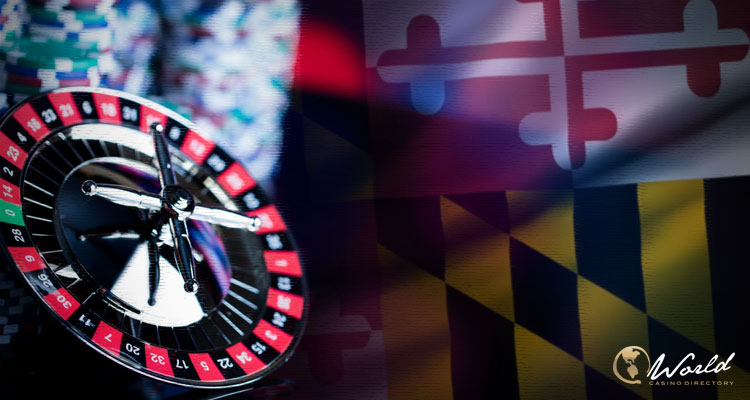Following the official legalization of online sports betting in Maryland, the government is considering the possibility of legalizing online casino play too.
Knowing this, on Wednesday, Senators Ron Watson and Nancy King introduced an online casino bill to the government.
Introduction of the bill:
This introduction represents the first try to officially legalize online casino play in the state, i.e. the start of a long road full of obstacles.
The legislation would permit online games provided by Maryland’s six video lottery operators. These operators are: MGM National Harbor, Horseshoe Casino, Live! Casino and Hotel, Ocean Downs, Rocky Gap Casino Resort and Hollywood Casino.
Each of these operators started offering retail sports betting very late in 2021, and after that, online sportsbooks debuted in Maryland in 2022.
Commenting on the rationale for introducing the legislation, Senator Watson said: “Especially now that folks have started to see the revenue we can get from sports betting, I think we’re past the point of hesitation and we’ve realized that casinos are so valuable to our economy here in Maryland. If we had to endure another pandemic and sports shut down, we would have zero money generated from our existing casinos and that would be a shame. But if we can put in place online gaming, we’ll have another revenue stream that can fund our aggressive efforts to improve our education system in Maryland.”
He also added: “I checked with the Maryland’s Attorney General office and was told that the online casino is an expansion of gaming in Maryland.
“The Maryland constitution requires any expansion of commercial gambling to get approval from voters.
“So after receiving a two-thirds vote in each legislative chamber, the question of authorizing Maryland online casino would need to go in front of voters in the November 2024 general election.”
Content of the online casino legislation:
The online casino bill consists of 10 pages. Some important details of the bill, specifically related to allowing video lottery operators to offer their online games, are:
- assigns the State Lottery and Gaming Commission to regulate online casino;
- sets an initial license fee at $500,000 for five years;
- adds a license renewal fee equal to 1% of the average annual proceeds from the previous three years;
- taxes online casino revenue at 15%;
- allows operators to deduct free play and promotional credits from revenue before paying taxes;
- state tax revenue minus regulatory expenses goes to the Education Trust Fund;
- allows the governor to enter into multi jurisdictional gaming agreements if legal federally.
In this regard, Mr. Watson said: “This is the current design.
“I looked at other states to try to come up with a framework our bill drafters could codify. Because we have two years to get this out, we have a lot of flexibility on what the final product would look like.”
Legalization of online poker as a priority of the bill:
For Mr. Watson, the main goal of submitting this bill to the government is to officially legalize online poker in Maryland.
However, the bill does not specifically mention online poker, but it falls under “casino-style games”, according to Mr. Watson.
In this regard, he said: “It has been my goal to introduce online casino legislation since entering the legislature, first as a state representative in 2019. But I also wanted to include multi jurisdictional compacts in the bill to create liquidity for a Maryland online poker market.
“I played on PartyPoker and PokerStars and sat down at a table with or took lessons from poker greats such as Phil Hellmuth, Doyle Brunson and Annie Duke.
“And don’t get me wrong, I love casinos but I am a long-time poker player. When I say I’m into poker, I’m really into poker. I played at the World Series of Poker, not the big game but some of the smaller events. I’m glad to take the lead on this having played poker for so many years.”
He also added: “I have a ton of friends who still play online on the PokerStars free application. They just agree to payouts ahead of time and then PayPal or Venmo each other after playing and I’m sure there are many others in Maryland doing so as well.
“People are already playing online, so why not legalize and regulate it?”
Reduction of problematic gamblers in the bill:
One of the huge problems that will be regulated when and if the bill passes is problem gamblers. Some of the important details in the bill related to reducing problem gambling are:
- prohibits licensees from advertising to individuals who are prohibited from participating in gambling activities and other at-risk individuals;
- requires that a problem gambling hotline be displayed when users log in and out of their accounts;
- requires that users have a mechanism to limit the amount of money deposited within a specific time period and temporarily suspend their internet gaming activity for any length of time;
- on or before Sept. 1 of each year, the State Lottery and Gaming Commission must report to the governor and General Assembly on the impact of internet gaming on problem gamblers and gambling addiction in the state.
Introductory year for the bill:
In addition to the aforementioned problems, the bill also covered minority-owned facilities in Maryland.
However, the senator does not expect the bill to pass this year, but believes it will pass next year. For now, the bill has been directed to the Senate Committee on Budget and Taxation, and the result remains to be seen.



